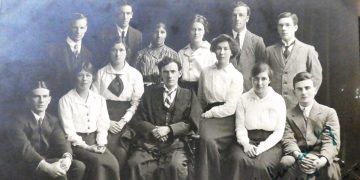 Andrew Whitehead in The Wire:
Andrew Whitehead in The Wire:
‘Hindu Lady Chaired’, ran the headline in the Cambria Daily Leader. The event was the Eisteddfod, a festival of Welsh literature and culture, at the University College of Wales at Aberystwyth in February 1914. A 19-year-old Indian student caused a sensation when she was awarded the top prize, the bardic chair.
All the entries in the contest – on the prescribed topic of Owain Lawgoch, a 14th-century Welsh patriot – were submitted under pseudonyms. The Leader recorded on its front page the ‘remarkable’ scene when the author of the winning verse stepped forward:
“The highest place was awarded to “Shita”, for an ode written in English, and described as an excellent and highly dramatic treatment of the subject. … Miss [Dorothy] Bonarjee received a deafening ovation when she stood up and revealed herself as “Shita”. … The “chairing” ceremony then proceeded amidst great enthusiasm.”
The ripples from this unparalleled success reached as far as India’s national newspapers.
“The examiners are required to give preference to Welsh odes, and it is rare for one written in the English tongue to secure the award’, the Calcutta-based Statesman reported. ‘This is understood to be the first occasion of the competition being won by a non-European, or by a member of the fair sex.”
